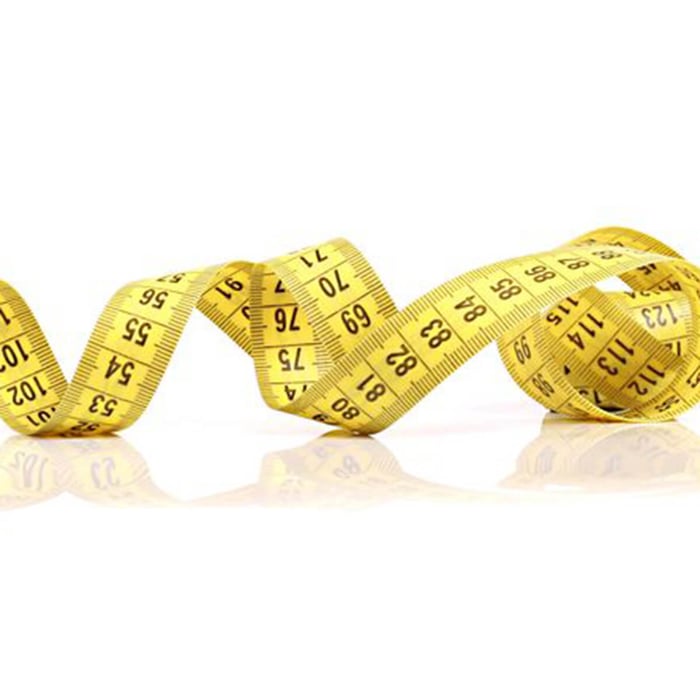Physical Activity & Exercise After Bariatric Surgery
Lifestyle
April 30th, 2019
Physical Activity
This article does not intend to initiate the debate of exercise versus physical activity terminology. Some individuals call it exercise, but for the purpose of this article we use the terms physical activity and fitness. It is best to not stress over what we are calling it and rather stress the importance of actually doing it, being successful at it, and enjoying it. The goal is to be more active and increase your fitness level. Maybe you have never participated in physical activity before? Maybe you have physical limitations that make certain types of physical activity difficult, if not impossible.
There are several benefits related to being physical active and increasing your fitness level, including, but not limited to, stress relief, better sleep, increased overall energy levels, decreased risk of chronic disease, better overall mood, etc. While all of these changes would be considered beneficial, how does someone get past the feeling of not wanting to be physically active and feeling successful with their physical activity regimen?
First Things First
If you have had bariatric surgery, being physically active and increasing your fitness level is important because this assists with losing weight and maintaining that weight loss, increasing your metabolism (i.e., the rate at which you burn calories), as well as some of the benefits listed above. Please always check with your bariatric surgeon before starting and/or changing your work out regimen. Lastly, ensure optimal overall success by also taking the proper bariatric surgery vitamins and minerals, staying well hydrated, and following a healthy eating plan.*
Find Something You Enjoy
One of the most important things to do when you are trying to achieve physical activity and fitness success is to find an activity that you can physically do and that you enjoy. You may not love it when you are first starting out, but you may find you grow to like it and eventually love it. Some bariatric surgery patients are not able to walk long distances outside or on a treadmill, but find they are able to walk in a pool. The addition of water makes walking much more enjoyable (i.e., no sweating and less pain in your joints). Maybe you hate walking, but you loved riding your bike as a kid. If so, try biking at the gym or outside on nice weather days. Maybe you were a dancer when you were younger and would enjoy a Zumba class or a cardio funk class. Ask your friends what they do for activity and/or if they would be willing to try something new with you. The more fun you create around your physical activity regimen, the more likely you are to stick with it and end up loving it.
Make a Plan
One important piece is actually planning your physical activity and fitness regimen. Some bariatric surgery patients report scheduling their planned physical activity sessions into their daily routine just as they would a doctor’s appointment or work meeting. This helps to hold you accountable and meet your goals. One common pitfall to avoid is going overzealous from the beginning. If you have never been physically active or it has been a long time, do not start by scheduling physical activity sessions six days a week for an hour each session. Start small and increase as the number of sessions and overall time as you go and are physically able. Set yourself up for success from the beginning. For example, if you have never been physically active before, you may set a goal to simply sit on your stationary bike for five minutes a day. You may find that you end up cycling for those five minutes and actually enjoy it. This helps to build the discipline to start the habit. Our body likes habits and is quite exceptional at adapting to new behaviors. Therefore, if you start moving your body, eventually your body will become accustomed to this new movement and will start to enjoy it and eventually crave it! As the five minutes on the stationary bike becomes routine, consider increasing by five-minute increments as tolerated and recommended by your bariatric surgeon.
Accountability Partner
For many bariatric surgery patients, having an accountability partner can help you to make your physical activity plan a habit. For example, if you know you are meeting your friend, spouse, or bariatric surgery buddy at the park for a daily walk, then you are far less likely to not show up when you know someone is counting on you. The same is true for your accountability partner as well.
Determine the Barriers and Pre-Plan to Overcome Them
Everyone has heard the same excuses or barriers before. In fact, most of us have probably used them. Barriers such as 1) there is not enough time in the day, 2) my kids have too many after school activities, 3) I cannot afford a gym membership, or 4) my job is too stressful to name a few. While time is limited for everyone, most people have time for social media, mobile games, television, etc. Figure out how to combine physical activity with some of your screen time and you will be well on your way to achieving success. One example would be to walk on a treadmill or bike on a stationary bike while watching one of your favorite television shows. Consider going for a walk while your kiddos are at their after-school activities. You can be physically without a gym membership. In fact, a physical activity regimen can be completed with a very small investment. Some examples of items you may wish to purchase for your “home gym” might include some good, supportive tennis shoes, a pedometer, some exercise/resistance bands, and/or a jump rope. Work in some physical activity into your daily work routine as a break from work. Not only will this help your physical fitness, but it will also help you to be more productive at work. You may notice an ability to be more focused on the task at hand after a quick bout of movement or some stretching exercises. Consider breaking up your physical activity regimen into two or three different sessions throughout the day. Some individuals find that it is easier to think about being physically active three times a day for only ten minutes as opposed to one thirty-minute session.
Make a list of your barriers in the past and write down a counter plan to overcome the barriers you have experienced in the past. This will help you to overcome these barriers, increase your long-term success, and prevent you from falling into old habits. Work to make physical activity a positive experience by including a friend, listening to music, taking it outdoors on nice days, or think of it as your alone time which can also be very therapeutic.
Consistency is Key
While both quality and quantity are important when it comes to physical activity and fitness, the initial factor that will help you to keep going is consistency. If you do not have time for your full physical activity session, consider cutting it short. Going for a fifteen-minute walk (when your normal goal is thirty minutes) is better than skipping it altogether. Knowing you got in part of the fitness session will help you to feel successful and proud of your accomplishment. There may be another day later in the week when you can do a little extra. Thinking about your workouts on a weekly basis is helpful for some individuals. If you are one of these individuals, work with your bariatric surgeon to set a weekly goal of the number of minutes to be physically active. Remember, even when a major life event or crisis happens (which it will), it is better to do the bare minimum than to completely skip it because we all know how hard it is to get back into your physical activity regimen once you are out of the habit completely.
Track Your Success
Just as you track your weight loss with either inches lost, the number on the scale, changes in clothing sizes, changes in body composition, etc., it is just as important to track your physical activity and fitness success! Write down how you feel throughout the day both mentally and physically prior to starting your physical activity plan and every one to three months write down the changes you have noticed. You may notice you experience less joint pain, it is easier to climb stairs, you are able to walk longer distances, you are able to play with your kids, and many other accomplishments. Also, track what you are actually doing. Maybe the first day you started, you were only able to ride the stationary bike for five minutes with a tension level of zero (increasing the tension makes it harder to peddle). After completing your physical activity plan for one month, you may find that you are up to twenty minutes per day, three to five days per week and have the tension level up to five! Writing down what you do and reviewing it periodically helps to see your success.
Loving Your Physical Activity and Fitness Plan
Now that we have discussed how to make physical activity more consistent in your daily life and increasing your feeling of success with your physical activity plan, how do you start to love or even like physical activity?
Developing a love for physical activity and fitness can be difficult for some individuals. Maintaining the energy to consistently get in your physical activity sessions can also be difficult. The following four recommendations may help when it comes to staying focused and achieving your fitness goals.
- Remind yourself of the feel-good mood after a hard physical activity session.
- Do not make yourself feel guilty for missing one physical activity session. One session does not determine your overall success or failure; it is just one session.
- Be realistic in setting your physical activity goals. Ensure they are goals you can live with and meet each week. Consider setting a range as a goal (i.e., walk twenty to forty minutes three to five days per week) to ensure that the weeks you are busier, you can complete the lower end of the range and still feel successful.
- Find ways to partner activities you enjoy and your physical activity. For example, if you love golfing, consider golfing without the cart. Even if you start out with walking the first nine holes, that is better than using a cart for all eighteen holes. If you love dancing, consider an in-house dance party as your cardio for the day by cranking up the tunes and showing off your dance moves in your living room. If you love socializing with your friends, see if any of them would be willing to meet once per week for a hiking and talking session rather than meeting for brunch.
While exercise after bariatric surgery can be a hard habit to start, once you get going you will thank yourself for starting because of all the wonderful benefits associated with physical activity and fitness.
* Proper supplementation should be viewed as an individualized regimen based upon each patient’s individual medical history, laboratory studies, and current medication use. Patients should follow the instructions of their bariatric surgery team. Patients should also be sure to follow-up with their bariatric surgery team at frequent intervals as recommended and stay up-to-date with requested lab work. Also, speak to your bariatric surgery team in regards to your individuated hydration plan and healthy eating plan.
H2GO Force Water Bottle

$19.99
Celebrate Life in style with our H2GO Force water bottle, a sleek, double-wall stainless steel for long-lasting use that keeps cold drinks cold for up to 24 hours and hot drinks hot for up to 12. Made using 18/8 food-grade… read more




